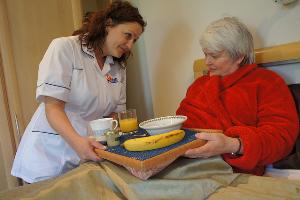Winter Safety Tips for the Elderly

The nights are drawing in, the mornings are getting darker and the balmy days of summer seem far behind us, which can mean only one thing: Winter is coming.
With this in mind, we thought we could offer you some tips for how you can stay safe over the winter months.
1) Avoid Slips
Recent winters here in the UK have been surprisingly mild, but that doesn’t guarantee an ice-free season this year. Ice-related falls are one of the most common injuries sustained by the elderly at this time of year, and older bones take much longer to mend. Avoid going out if roads and paths are snowed under or particularly icy. Wait for them to be properly gritted and cleared, and if you are going out be sure to wear footwear with proper grips for better traction.
2) Wrap up Warm
This should go without saying, but as the temperatures drop be sure to dress appropriately. So t-shirts, shorts and flip-flops are a no-no, and we’d avoid wearing that bikini if you’re taking a walk through the park! All joking aside, whether you’re indoors or outside we recommend dressing in layers. That way, if you are too warm you can remove each layer quite easily without then getting too cold. And do make sure you’re comfortably warm and cosy when you go to bed.
3) Beat the Winter Blues
Many people, not only the elderly, can suffer from various forms of depression during the winter. The shorter days and less exposure to sunlight often results in lower levels of Vitamin D, which can cause our moods to drop. Try to remain as social as possible, even if it’s just phoning a friend or relative. If you are mobile, get some exercise. Take time out to do the things you enjoy and – weather permitting – go outside during the daytime to enjoy some natural light.
4) Eat Properly
Yes, we know winter for many means Christmas, and Christmas is a time when we tend to overindulge, but it’s important that you maintain a balanced diet through the winter months and don’t just fall into a pattern of eating stodgy – and not particularly nutritious – comfort food. Homemade stews and casseroles are a simple, delicious way to get some of your “five-a-day”, while dairy products and oily fish such as tuna and mackerel are rich in Vitamin D.
5) Make Sure Heating Appliances Are Safe
Gas fires and heaters are the quickest way to heat the home, but if they aren’t fitted properly or if they’re in any way faulty they can allow deadly, odourless carbon monoxide inside. Carbon monoxide detectors are cheap and reliable, but even if you already have one it’s vital to make sure its batteries and alarm are in working order before you begin using gas appliances over the chilly winter months.

